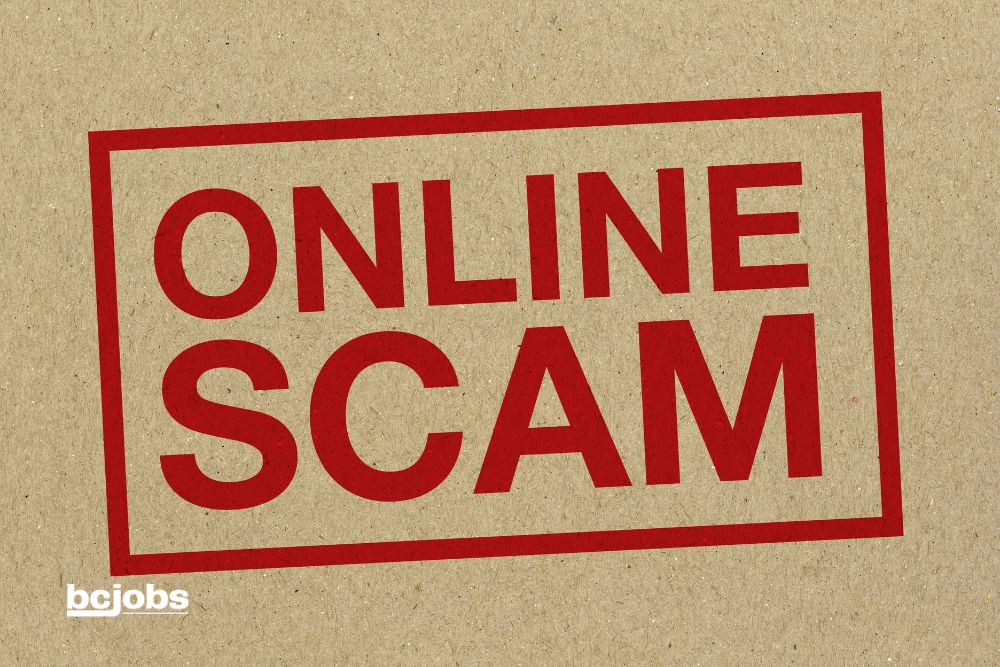Online job hunts and consequential remote employment have been on the rise since the pandemic. This is advantageous because you could accept jobs from anywhere in the world. But sometimes, this means conducting the entire onboarding process remotely, which naturally increases the chances of scams.
Job searching websites such as BCJobs conduct thorough research before listing an employer. However, it’s still crucial for you to spot the scams yourself so that you don’t end up in a devastating situation.
How to know you’re being scammed on online jobs?
Your priority is scouring for potential red flags before you apply for a job and while you’re in the middle of the interview process.
The signs include:
- The employer claims you got the job. However, you have to pay a “fee” to join the company. They have a badge or something similar you have to pay for. A legit employer would cut the cost from your pay cheque directly instead of asking you to make extra payments.
- You receive a cheque from the employer along with a contract. You should look out for weird details and discrepancies in the contract. They are likely to ask you to pay a portion of the cheque you received to another entity. What happens is that once you pay the money, you find out the cheque was invalid, and you don’t receive the funds at all.
- The job offers reach your inbox or email address with the promise of a huge sum of money even though you don’t remember applying. This could be legit sometimes, but this means someone has referred you. Call up the person they claim to have gotten your information from and check if it’s true.
- Another odd scam is when an employer sends funds to your bank account and asks you to send the money to another account. They claim this is your job as a financial agent. In reality, the funds might be related to a crime, and they’re using your account to launder money.
How to protect yourself from a scam?
You can do a couple of things to not fall victim to a scam. In addition to spotting suspicious activity from the job description alone, if you do believe a job is legit, you should:
- Check if the job is posted on the official company website and the job boards.
- See if the company has a LinkedIn page. If they do, how many employees do they have? Can you contact any of their employees, and can these employees vouch for the company?
- Call up the company from the official website and talk to a representative. Even having proper conversations over the phone would clue you whether it is legitimate.
- Never agree to pay for a job.
- Be especially wary of virtual shopping jobs that involve buying stuff and shipping them. These have the highest chances of being scams.
- Keep your birthdate, address, and phone number out of your resume if you doubt the job offer.
- Don’t click on links in text messages and emails promising a job when they’re from someone you don’t know.
Final Thoughts
Do thorough research on any job offer before you apply. Sometimes, scammers pose on behalf of a company on job boards and have no connection to the actual company.
About the Author
BCjobs.ca is Western Canada’s largest job board, and host of “Innovators” a weekly podcast interviewing top recruiters in BC and across Canada. Check out our recent interview with Best Buy Canada’s CTO Dave Evans (Podcast link) and PayPal’s Recruitment Manager Yvonne Wu (Podcast link)




